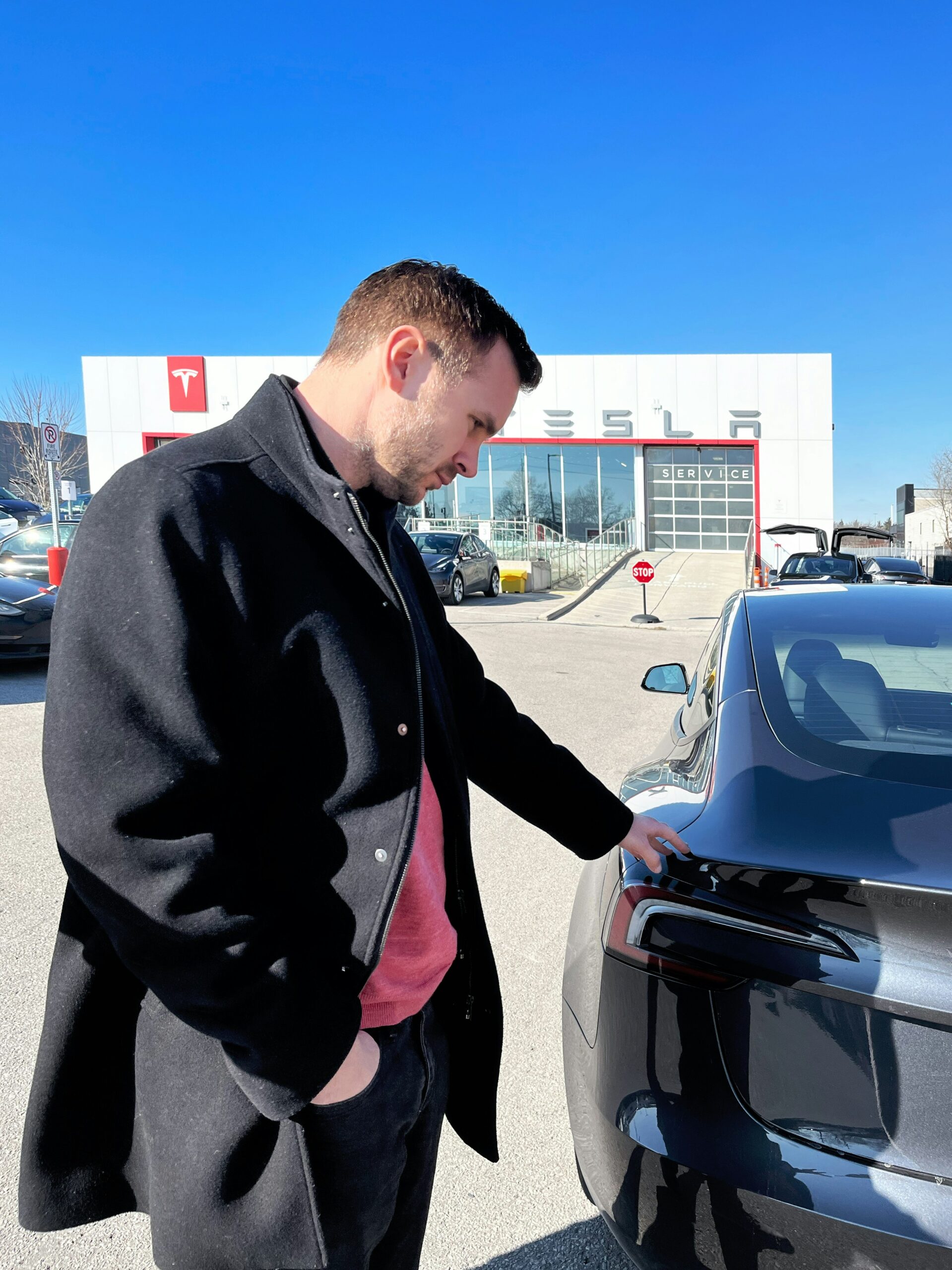As Politics and Consumerism Clash, a Look at Tesla Dealerships Across Communities
The line between consumerism and politics has become increasingly blurry in recent years — and that can create problems for business owners who hold strong political beliefs at odds with their customers. Just ask Elon Musk.
Before he was dominating the headlines as the head of the Department of Government Efficiency (DOGE), Musk was a businessman and owner of well-known companies such as the social media platform X (formerly Twitter) and the aerospace company Space Exploration Technologies. But before aiding the Trump White House, Musk was probably best known as the owner of the electric car company Tesla, which has also been making headlines of late … for the wrong reasons.
Tesla’s income dropped by a startling 71% in the first quarter of 2025, and one big reason is thought to be Musk’s role with team Trump. In response, Musk announced he will spend less time at the White House and more time trying to get Tesla back on track. But it may not be that simple.
In many ways, the data suggest that the two sides of Musk — the businessman and the political force — are in conflict.
Telsa Dealers in the ACP
And viewed through the American Communities Project’s 15 types, the problem is even more clear. The geographic tribalism that has come to define the nation presents special challenges for Tesla. (This set of data comes from an analysis the ACP did for Business Insider.)
Of the roughly 275 Tesla dealerships in the United States, more than three-quarters (213) are based in the Big Cities, Urban Suburbs, College Towns, and African American South, according to data from ScrapeHero. Of the 15 community types in the ACP, those were the only four that did not vote for Donald Trump in the 2024 election.
And the two community types with the most Tesla dealerships by far are the Big Cities and Urban Suburbs. There are almost 200 Tesla dealerships in those community types alone, and Democrat Kamala Harris won them both by double digits last November — 27 percentage points and 13 percentage points, respectively.
That’s not a huge surprise, of course. Electric cars remain expensive, and their makers are still trying to grow market share. It makes sense that Musk would want to locate the dealerships in very populous areas where households have higher incomes.
To be clear, the politics of the Big Cities and Urban Suburbs are not uniform. Republicans live in those places, too. Even in Washington, D.C., the bluest of Big City communities, some 6% of voters (about 21,000 people) cast ballots for Trump in 2024. That’s not insignificant.
And, of course, people can travel to shop for a car. The dealership can be a few counties away if the buyer is motivated. But the data show the challenge of doing business in a country where consumption has become part of the political divide.
The demographics behind the ACP show that Musk would have been better off locating more Tesla dealerships in Exurbs. They seem to fit the electric vehicle consumer profile better than other right-leaning communities. Trump won the Exurbs by 14 percentage points, and those places tend to have higher median household incomes and more college degrees than other Trump-friendly communities.
Consumerism in the ACP
The impact of the Trump/Musk bromance on Tesla is not exactly a surprising development. It’s simply the latest example of politics impacting consumer behavior. Before Tesla there was Bud Light. There was the dust-up over Disney. Even looking at someone’s blue jeans can be revealing, we explored in The Wall Street Journal.
But Tesla’s situation is more problematic in some ways. One can sell beer or jeans anywhere. It’s a question of shelf space. And TV and movies can find their audiences where they live over any number of devices and platforms. A car dealership is the definition of a brick-and-mortar experience. Customers need to come in, have a seat, take a test drive. Shopping is done in person.
If you’re a car company and your outlets are in the wrong place, the fix is more complicated — especially if you are a newer car company without an extensive dealer footprint.
Of course, the current Tesla situation is unlikely to be the last time that consumer choices bump into politics. Much of the ACP’s work focuses on how different communities are developing different cultures within the United States, and consumerism is clearly a big part of those cultural divides.
Increasingly, shoppers are bringing their politics with them to the store — and to the online marketplace. The ACP has a vast collection of consumer data from MRI-Simmons, the consumer research firm, which we will continue to explore in the next year.
